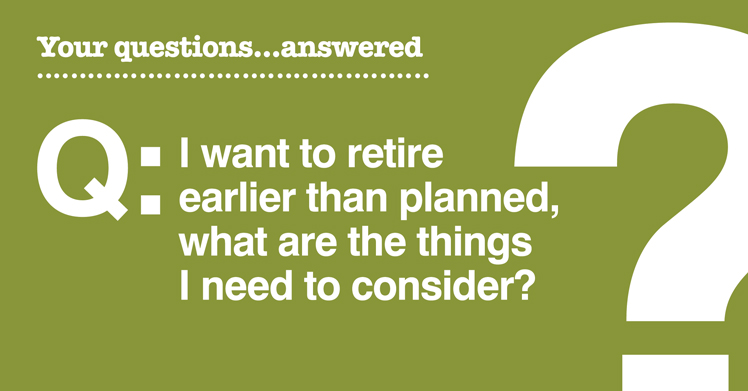Almost a quarter (24%) of NHS dentists are intending to retire earlier than planned, according to the latest Dentistry Confidence Monitor survey.
More than 400 NHS and private dentists took part in the survey in 2019. Those who said they were intending to retire earlier than planned were part of the 77% of predominantly NHS dentists who said they didn’t see themselves in the NHS in five years’ time.
Retiring is a huge milestone in life and brings with it a lot of change, not least in terms of your financial situation.
To find out more about the kind of considerations you need to be thinking about in order to make that transition smooth and maximise the opportunities it may bring, I asked Michael Copeland from Wesleyan, the specialist financial services mutual for dentists: “I want to retire earlier than planned – what do I need to do?”
Michael: ‘Plan, plan, plan. When a client approaches me about taking early retirement, the very first thing we talk about is whether or not they have a plan – specifically, whether they’ve thought about what they really want to do in their retirement years, not just what income they’ll need to get by.
Many people will have an idea of their basic living expenses, but it’s important to also determine the type of lifestyle you’d like to lead and how much that will cost.
From here, dentists can assess whether the financial resources they have – or are likely to have when they retire – will be sufficient.
Take pension income, for example.
Dentists who retire early will have less time to build up the value of their pensions. Those who are members of one or more of the three NHS pension sections and schemes – commonly referred to as the 1995 section, the 2008 section and the 2015 scheme – will also be subject to an actuarial adjustment to their pensions if they decide to take benefits before their ‘normal pension age’.
The normal pension age varies depending on which section of the pension scheme a dentist has joined. For the 1995 section, the age is currently set at 60; for the 2008 section it’s 65, and for members of the 2015 scheme it’s 65 or the State Pension Age if higher– which will vary depending on your sex and when you were born.
If the dentist is a member of more than one section or scheme, they will have different retirement ages for each element.
The ultimate effect an adjustment has on an individual’s retirement plans will depend on their own personal circumstances. It’s therefore advisable that those planning to stop working before their normal retirement age discusses this with a specialist financial adviser who understands the NHS Pension Scheme.
Maximise your income
The next step will be to assess how you’ll fund your retirement and what you can do to maximise your resources.
Maximising your pension plan – while being aware of the implications of exceeding your annual or lifetime allowances – can help dentists to be more tax efficient, particularly when combined with the use of tax-efficient investment and savings vehicles such as ISAs.
Members of all NHS pension sections and schemes can buy ‘Additional Pension’ in units of £250 of annual pension, up to a limit of £6,500 of annual pension depending on which section they are in.
The time when Additional Pension is payable depends on the section/scheme and a dentist’s selected retirement age. The value will be reduced if a member opts to retire before this point.
Those in the 2015 NHS pension scheme could also consider an option called Early Retirement Reduction Buy Out (ERRBO), which allows them to buy back some of the value of their actuarial reduction if they retire ahead of their normal pension age. The choice to purchase ERRBO can affect the amount of additional pension a 2015 scheme member can buy.
But there are other ways to help fund retirement that dentists could also consider, beyond pensions.
For example, some dental professionals may have not yet considered making investments, while those that have investments in place may not have recently reviewed their portfolio to ensure it supports their retirement goals – an important step.
Factor in your practice
Finally, those who have a stake in or own their practice will need to ensure they have a plan in place for the business as they retire.
If a dentist owns both their property and an NHS contract, they’ll need to decide whether to sell just the building, or both together.
Retaining ownership of a property could provide them with a steady revenue stream through retirement, while selling could provide them with cash up-front to invest elsewhere. Any additional income will have tax implications, which will also need to be considered as part of wider retirement plans.
If they do decide to sell, they’ll need to start planning as early as possible to think about who they will sell to – whether this is an associate, or another business.
Seek expert guidance
If you decide that you’d like to retire earlier than previously planned, start putting your plans in place now, and be sure to seek expert guidance from your financial adviser.’
Thanks to Michael for his detailed expert advice about the various NHS pensions and schemes, and factors to think about when it comes to retirement.
Along with decisions about whether to work in the NHS or private practice and whether to become a practice owner or stay an associate, the move to retire, earlier than planned or otherwise, is a big step in your career.
It is important to think ahead, to gather the information and facts you may need to make sure that retirement will allow you to fulfil your plans – whatever they may be.
